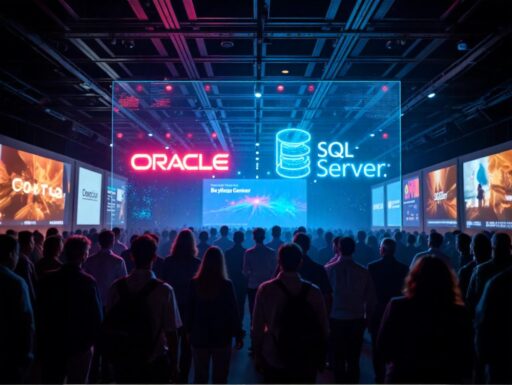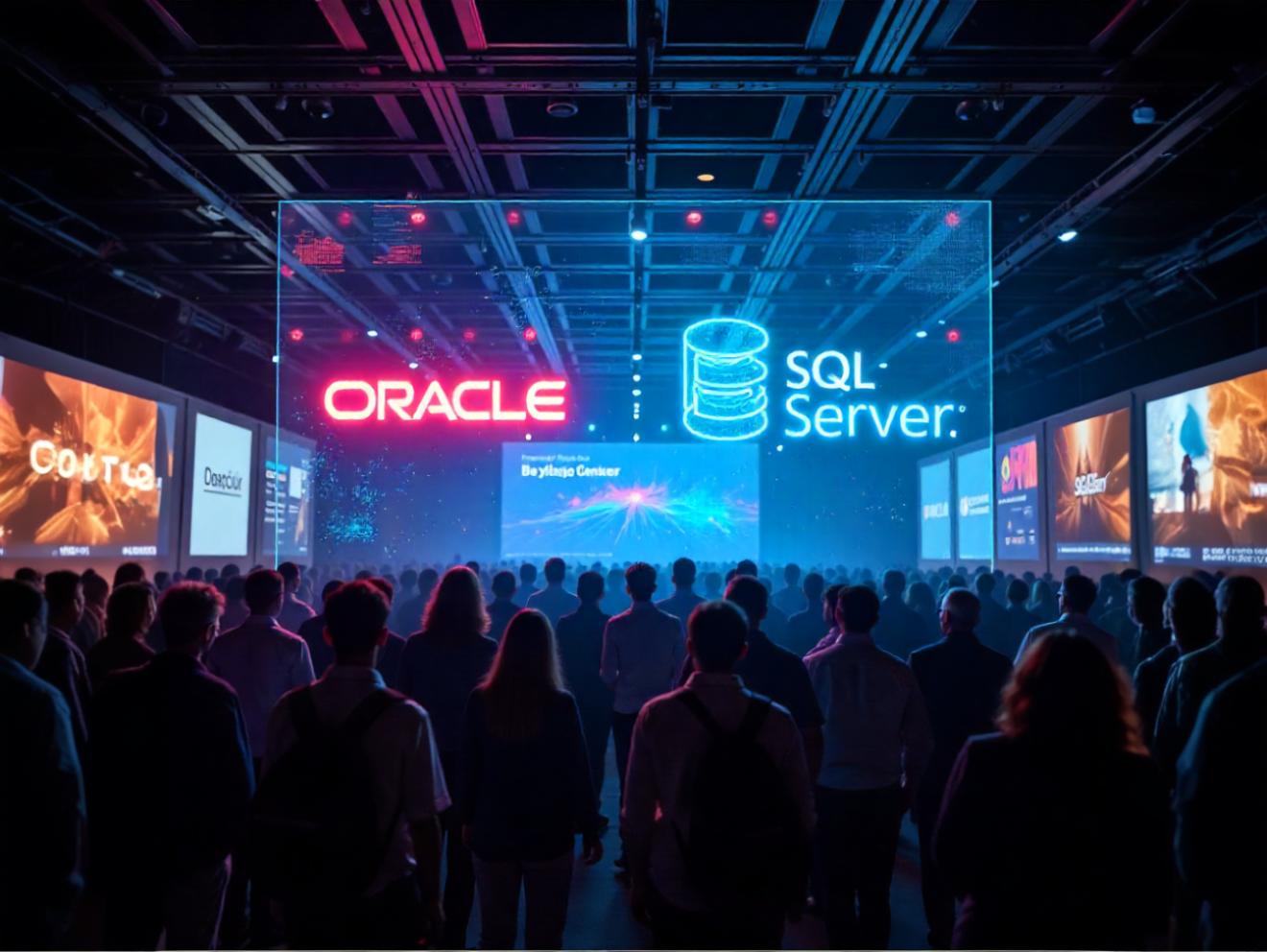In the fast-paced world of IT, choosing the right database management system (DBMS) is critical. Among the top contenders, Oracle Database and Microsoft SQL Server stand out. Whether you’re a developer, data analyst, or IT manager, understanding how these two platforms differ can shape your career and project outcomes.
Let’s break down Oracle vs SQL Server in terms of features, performance, licensing, and career prospects for 2025.
Overview: Oracle and SQL Server in 2025
- Oracle Database: A powerful, enterprise-grade relational database management system (RDBMS) known for advanced features, high security, and large-scale deployment in industries like banking, healthcare, and telecom.
- SQL Server: Microsoft’s flagship RDBMS used for applications, reporting, and analytics. Preferred by businesses that run Windows environments and want tight integration with Microsoft tools like Power BI and Azure.
Feature Comparison: Oracle vs SQL Server
| Feature | Oracle DBMS | SQL Server |
| Platform Compatibility | Cross-platform (Linux, UNIX, Windows) | Primarily Windows & Linux support |
| Programming Languages | PL/SQL, Java | T-SQL, .NET, CLR integration |
| Backup & Recovery | Advanced RMAN, Flashback | Point-in-time restore, Always On |
| Security Features | Transparent Data Encryption, Label Security | Advanced threat protection, Data masking |
| Partitioning | Advanced partitioning options | Basic partitioning available |
Performance: Which One Is Faster in 2025?
Both Oracle and SQL Server have improved significantly in terms of speed and scalability.
- Oracle: Offers robust performance tuning, in-memory processing, and scalability for complex queries and big data workloads.
- SQL Server: Improved with intelligent query processing and integration with Azure Synapse Analytics.
Verdict: For massive enterprise workloads, Oracle leads slightly in performance. For mid-size businesses or integrated Microsoft environments, SQL Server delivers excellent results.
Licensing & Cost Comparison:
Understanding Oracle licensing vs SQL Server licensing is crucial for cost planning.
Oracle Licensing (2025)
- Expensive and complex
- Charged per core, per processor
- Offers both on-premise and cloud subscription-based pricing
SQL Server Licensing (2025)
- More cost-effective for small and medium businesses
- Options include per-core, per-user, or server + CAL
- Now bundled with Microsoft Azure services
Pro Tip: Oracle offers more features out of the box but at a higher cost. SQL Server provides flexibility and affordability, especially if you’re already in the Microsoft ecosystem.
Career Scope: Which DBMS Has Better Job Prospects?
Oracle Career Opportunities
- Oracle Database Administrator (DBA)
- Oracle PL/SQL Developer
- Data Architect
- Cloud Specialist (Oracle Cloud Infrastructure)
Avg Salary in India: ₹9–15 LPA
SQL Server Career Opportunities
- SQL Server DBA
- Business Intelligence Developer
- Azure Data Engineer
- Database Developer (.NET)
Avg Salary in India: ₹6–12 LPA
Cloud Integration:
Oracle Cloud
- Advanced Autonomous Database
- Deep AI/ML integration
- Supports hybrid cloud deployments
SQL Server with Azure
- SQL Managed Instance
- AI-powered query performance insights
- Seamless integration with Microsoft Power Platform
Conclusion:
In 2025, selecting between Oracle and SQL Server depends on your goals, project scale, and budget. Oracle is ideal for enterprise-grade performance and advanced features, while SQL Server offers ease of use, strong Microsoft integration, and affordable licensing.
For students and professionals aiming to build expertise in these tools, enrolling in an Information Technology Course at CADD Centre can give you hands-on training with real-world applications. Whether you’re starting out or upskilling, mastering the right database tool is a smart step in today’s competitive tech world.
Image source AI image generated by freepik
FAQs:
What are the main differences between Oracle and SQL Server in 2025?
- Oracle is known for its enterprise-grade performance, advanced security, and wide platform compatibility.
- SQL Server, on the other hand, is more cost-effective, tightly integrated with Microsoft tools like Azure and Power BI, and ideal for mid-sized businesses
Which is more secure Oracle or SQL Server?
Both are strong. Oracle offers SQL Firewall, Virtual Private Database, Data Guard, and TDE for encryption. SQL Server provides TDE, ledger tables, dynamic masking, Azure AD integration, and advanced threat protection
What are the key language and programmability differences?
Oracle uses PL/SQL, offering richer procedural capabilities, multi-instance pluggable databases, and more programmability options. SQL Server uses T‑SQL, which is easier for .NET developers and tightly integrated with CLR
How do they compare in cloud-native deployment?
Oracle offers OCI with autonomous services and cross-cloud deployments, including AWS. SQL Server is optimized for Azure with Managed Instances, seamless integration, and hybrid cloud scalability
What are the career opportunities after learning Oracle or SQL Server?
Oracle leads to roles like Oracle DBA, PL/SQL Developer, and Cloud Architect. SQL Server skills open paths to Azure Data Engineer, BI Developer, and .NET-integrated Database Developer. Upskill with database training at CADD Centre to boost your job readiness for 2025.





